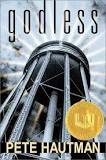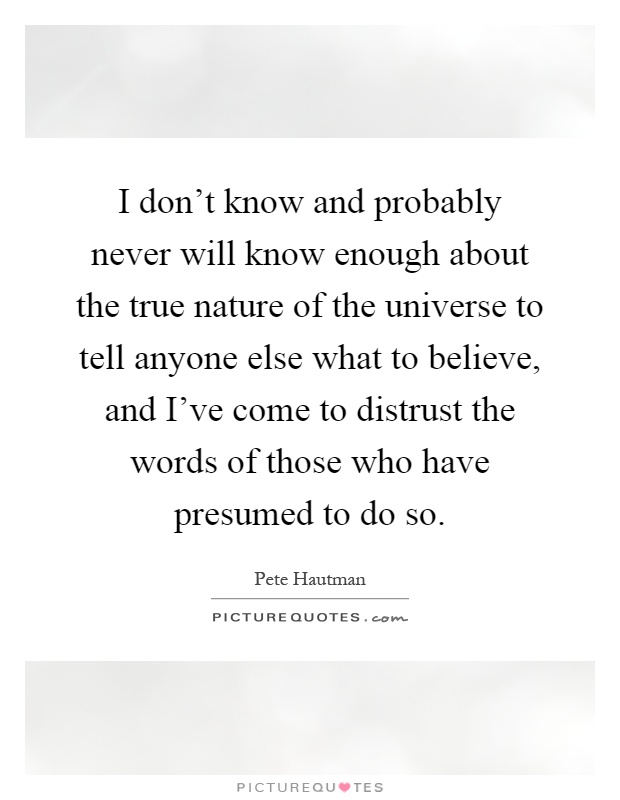Lecture for Godless
GODLESS

______________________________________________________________________________________________________________________________________________________________________
As part of your notes read this short interview with our author:
https://nexuszine.wordpress.com/2008/07/07/interview-pete-hautman-author-of-godless/
______________________________________________________________________________________________________________________________________________________________________
Reading Notes & Reflection Questions
Our narrator Jason Bock envies Henry Stagg's presence at the beginning of the novel and talks about how "he scares the crap out of me" (5). More notably he says,
"I could take a guy like Henry any day of the week. But Henry has somethingI don't have. Henry doesn't care what happens to Henry.
And that is why he can punch me in the face and get away with it.
Staring up at him, I could see it in his eyes. Henry didn't care. I could have thrown him against the tower's steel pillar and beat his head to a bloody pulp and that would have been okay with Henry. He'd just keep swinging those hard, knobby fists, laying on the cuts and bruises and pain until I beet him unconscious, and he would't care one bit. But I would. I'd care a lot. And that was Henry's power.
I respect power. Even in the hands of such as Henry Stagg" (5-6).
How do we see Bock's character evolve throughout the first half of this book. Would you argue that he has "presence" or power now and how would you define or describe him as a character?
What is the friendship like between Jason and Shin? How has it changed from the beginning of the book to the night they all plan to meet at the tower for mass?
What moment does Jason highlight as the "turning point in my life". Did this incident seem that important or relevant to you initially?
Do a brief character sketch of Jason's parents and talk about how we view Jason in light of their beliefs, behaviors, and actions.
What is the ongoing importance of the sub story about Shin as god of the universe of gastropods? (Look at p.24-25.)
Reflect on this passage about Jason not taking communion at church, "So I sit and endure the stares and the pangs and twinges of Catholic guilt, knowing that I am going the right thing if I am right, and the right thing, even if I'm wrong...Being a Catholic is hard. Being an ex-Catholic is even harder" (39).
Why is Magda Price so important to this story so far? What important role does she play?
Why might Jason become so obsessed with creating this religion of Chutengodians in the first place? What could be driving him forward? Also, why must he climb the tower? What affirmation is he after?
Take some time to reflect on Jason's statements about belief and reality p 89-90. Does he seem to have the same opinions as the fellow Chutengodians?
What other characters do we see evolving and changing dramatically over the first half of the book? (Look at Shinner on p. 79-82 and 99 & Henry Swagg on p. 93.)


https://www.youtube.com/watch?reload=9&v=o2VVxJzhh4k
This interview is self-made and very informal. While it starts off just talking about pizza (and you may skip ahead to a 1:30) I find that Hautman offers some important and insightful points overall worthy of reflection.
Yes, Hautman begins discussing dogs. But there are larger metaphors here that might resonate with Godless, especially in regards to Jason and Henry's relationship. Listen to how Hautman talks about trying to deal with a bully. The little list of strategies he gives was enlightening to apply thinking about Jason's choices and actions.
Who knows perhaps some of Hautman's comments might lead you to think about an essay argument you would want to make about Hautman's work for Paper 2.
Godless Book Club discussion:
* What is interesting about this book club discussion is that it is geared towards kids and gives us some glimpses into how the target audience might read and process this book. What you might look for in this 10 minute video, that is admittedly a bit slow at times, is to think about how younger readers interact with Godless and where you share the same takeaways. We have looked in our critical reading at how youth are supposed to engage with YA lit and what content is or is not appropriate. I have enjoyed looking over critical glossaries. Here we have more of an immediate connection to young readers of Godless that I find pertinent and informative.
I appreciated looking at our author Pete Hautman's thoughts here (copied below) as they help us get into his head writing this book: http://www.petehautman.com/godless-2.html
Hautman-----------A FEW THOUGHTS ABOUT GODLESS, IN NO PARTICULAR ORDER...
Godless is neither pro- nor anti-religion. The main character. Jason Bock, is Roman Catholic, but he could as easily be Protestant, Jewish, or Muslim.
Godless is not about God. It doesn't weigh in on the existence or nature of a Supreme Being. It is not about which religion is the truest, or the best. It's about how people--teenagers in particular--deal with the questions that arise when their faith has been shaken.
If you strip away the whole religion thing, Godless is about a big fat nerdy kid named Jason Bock who has an excess of smarts and imagination, and his relationship with his even nerdier snail-collecting best friend Shin.
Godless is about the power of ideas--Jason conceives the Chutengodian religion, he sets it in motion, but he is unprepared for the consequences. This is a latch-key teenage moment--our first conscious realization that the expression of our own beliefs can have a huge impact on the beliefs of others--especially our friends. It's about discovering personal power, and the heady experience of plying it.*
WHY I WROTE GODLESS...
Godless was inspired by two events in my life.
First, I read a story about Joseph Smith, the founder of the Church of Jesus Christ of Latter Day Saints, better known as the Mormons. According to church teachings, Joseph was just another 14-year-old kid who was vaguely dissatisfied with the faith of his fathers when God called young him as His prophet. After several years of spiritual preparation, Joseph was visited by the angel Moroni, who revealed the location of golden tablets containing the Book of Mormon. Joseph soon went on to create one of the most successful modern-day religions. Reading his story I thought, wow--what an incredible coming-of-age story that is!
Then I remembered something I hadn't thought about for more than 35 years--a brief teenage interlude when I and a few of my friends devised a mock-religion worshipping the St. Louis Park water tower. It was a summer goof, a way to be irreverant and...well, teens are easily bored, y'know? Anyway, we had this whole epistemology, a pantheon of water tower gods in which the towers belonging to other cities were lesser deities, and so forth. It was something I did for a few weeks one summer and then forgot about.
One thing you learn when you write teen books--all those uncomfortable, embarrassing memories you worked so hard to erase, they're still in there. It all came back to me in a rush.
Godless is not a memoir. It's fiction through and through. But the feelings and the questions raised by the characters are quite real. I know. I was there.
REGARDING MY PERSONAL BELIEFS...
I was raised Catholic, and as a teenager I had many of the thoughts I attribute to Jason Bock in Godless. I was obsessed with religion, studying the amazing variety of Christian and non-Christian faiths. I believe I became a better person for having explored the many questions asked, answered, and avoided by the religions of the world. At least I hope I did.
Am I now a religious person? Well, I believe in religion. I believe religions have the power to do good, to help people live together, and to live with themselves. I also believe that religions can sometimes breed and channel destructive forces, as evidenced--on both sides--by the conflicts in Iraq and Afghanistan. Religion can be both powerful and dangerous. I believe in it, sure. It's like asking if I believe in automobiles. Or guns. Or drugs. Or fire.
When I was seven years old--what Catholics consider the "Age of Reason"--I cornered my father on the Santa Claus question. We were on the way to church, just the two of us in his '58 Chevy wagon, something we did at 5:30 every morning during Lent. I demanded to know how it was possible that a fat man in a red suit could perform his annual miracle. After a bit of squirming, my dad admitted the truth to me. That was the beginning of the unraveling.
We would have these conversations about the nature of God. He had an answer for everything. One day, again on the way to church, I was grilling my dad about God's dimensions and capabilities.
"Does God know every single thing I am thinking?"
"Yes, Pete."
"Does God know what I am going to think next?"
"Yes."
"Could God blow up the moon if he wanted to?"
"Yes."
"Is God everywhere?"
"Yes."
"Is God inside my little finger?"
"Yes."
"Could God make two plus two be five?"
My father, who was a lawyer, an accountant, and who had been educated by Jesuits, thought for a moment. Then he said, "No, Pete, God couldn't do that."**
That was a classic crack-in-the-dike moment. Over the next several years, one question led to another to another. The Bible and church teachings did not alway supply the answers I sought, so I looked elsewhere.
What did I find? I found that I did not (and probably never would) know enough about the true nature of the univese to tell anyone else what to believe, and I came to distrust the words of those who presumed to do so. I also learned to recognize and respect the power of religion, and of faith.
I do not worship; neither do I scoff.
* If you would like to share your personal religious beliefs with me, please email blackhole@mywayistheonlyway.com.
** Eventually I came to disagree with my father's answer. That is, I don't necessarily believe that an omnipotent supreme being exists, but if he/she/it does exist, then he/she/it (being omnipotent) should be able to alter reality in such a way that two plus two could equal five--or any other number. Or any other thing, for that matter. This falls into the same category of questions such as, "Could God make it so that History had never happened?" or, "Could God make it so that God did not exist?" Such questions usually reduce to questions of meaning and language. and are best explored by people who have WAY too much time on their hands.

